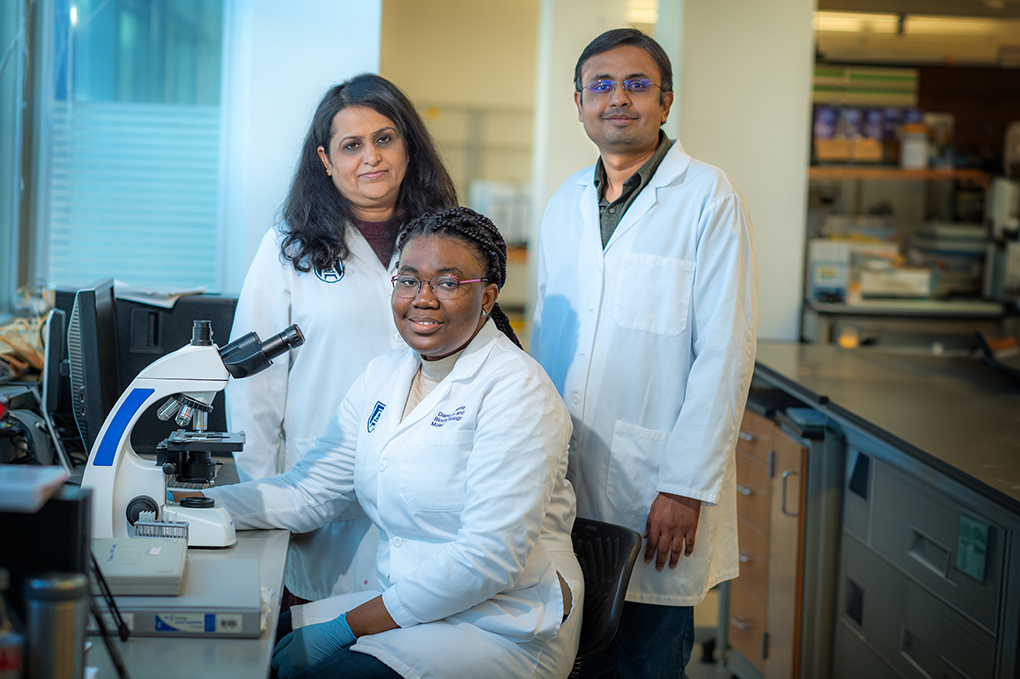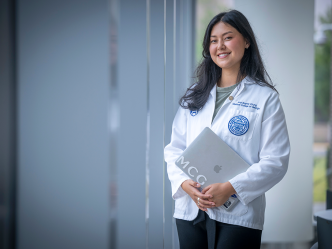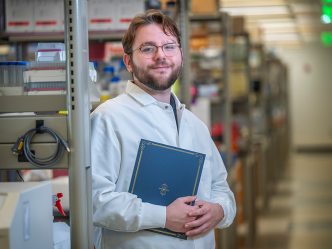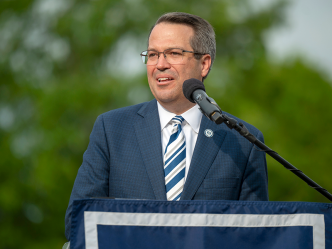When Diana Asante decided to attend Augusta University’s Medical College of Georgia as a PhD candidate in the Department of Biochemistry and Molecular Biology program and student research assistant at the Georgia Cancer Center, she saw the opportunity to get involved in translational research, particularly in cancer research using exosomes.
Asante is originally from Ghana in west Africa where she earned her BSC in Medical Biochemistry and Molecular Biology from the University of Health and Allied Sciences, Ho.
Before she ever set foot in a lab in Augusta, she already possessed a strong background in research. She was a research assistant at the Centre for Plant Medicine Research in Akropong Mampomg, Ghana in 2018, the Noguchi Memorial Institute for Medical Research in Legon, Accra Ghana in 2019, and the Council for Scientific and Industrial Research, Biomedical and Public Health Research Unit in Accra, Ghana from 2020-21.
It was that strong background and her desire to work with exosomes that drew her to join the research team of Sharanjot Saini, PhD, once she arrived at AU.
“I’ve always been interested in being a part of research that has an impact on human lives, translational research,” Asante said. “As soon as I arrived at AU, I was in a faculty introduction presentation where each faculty researcher was able to talk about what their lab was focusing on, and as soon as I heard Dr. Saini describe her lab’s work using exosomes as targeted therapy, I knew I wanted to join her team.”
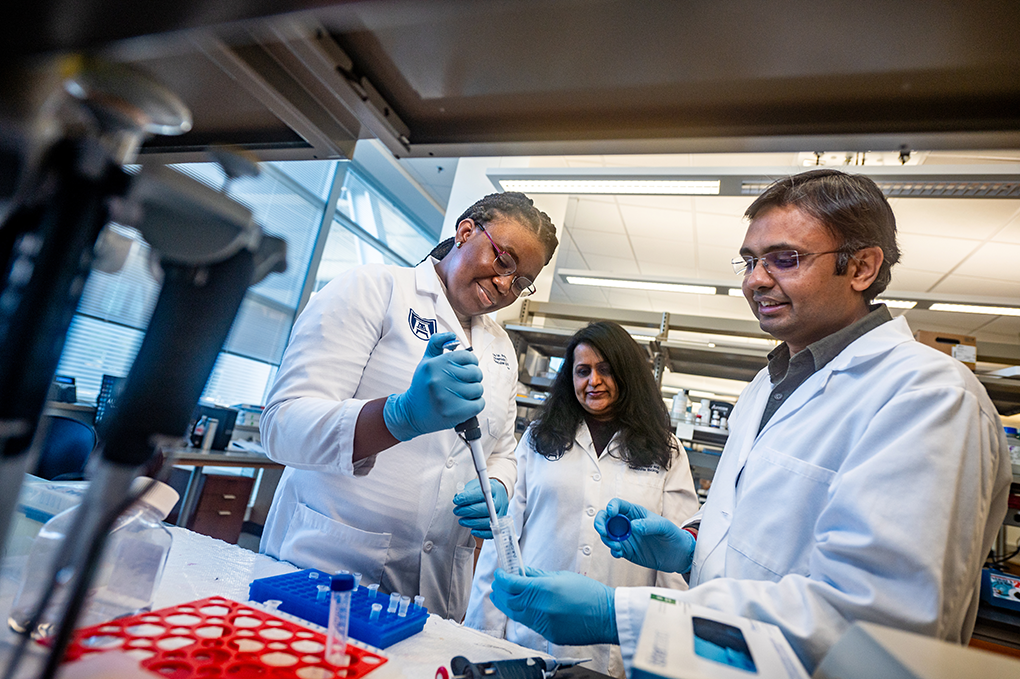
Asante has jumped in head first into her work on Saini’s team, and Saini has enjoyed working alongside her.
“Diana is a sincere, motivated and hard-working student. She joined my lab this year and has been helping with multiple ongoing projects,” Saini said. “She is a quick learner and acquired the required technical expertise such as exosome isolation and engineering within a short time. When Diana came onboard, she helped us with the ongoing project wherein we engineered exosomes against a surface antigen expressed on NEPC cells.”
Together, alongside Saini’s post-doctoral fellow Sandip Nathani, PhD, the trio are currently examining novel exosome based therapeutic interventions to treat neuroendocrine prostate cancer, a lethal form of prostate cancer which can be found following treatment with androgen receptor targeted therapies. They are also examining the role of microRNA genes in driving neuroendocrine prostate cancer (NEPC).
According to the American Cancer Society, prostate cancer is the second-leading cause of death in American men behind lung cancer. Roughly half of those diagnosed with NEPC live less than a year.
“NEPC is associated with extremely poor survival rates and is currently treated with platinum-based chemotherapy that is associated with toxicity and relapses, highlighting the urgent need for developing novel therapies,” Saini said.
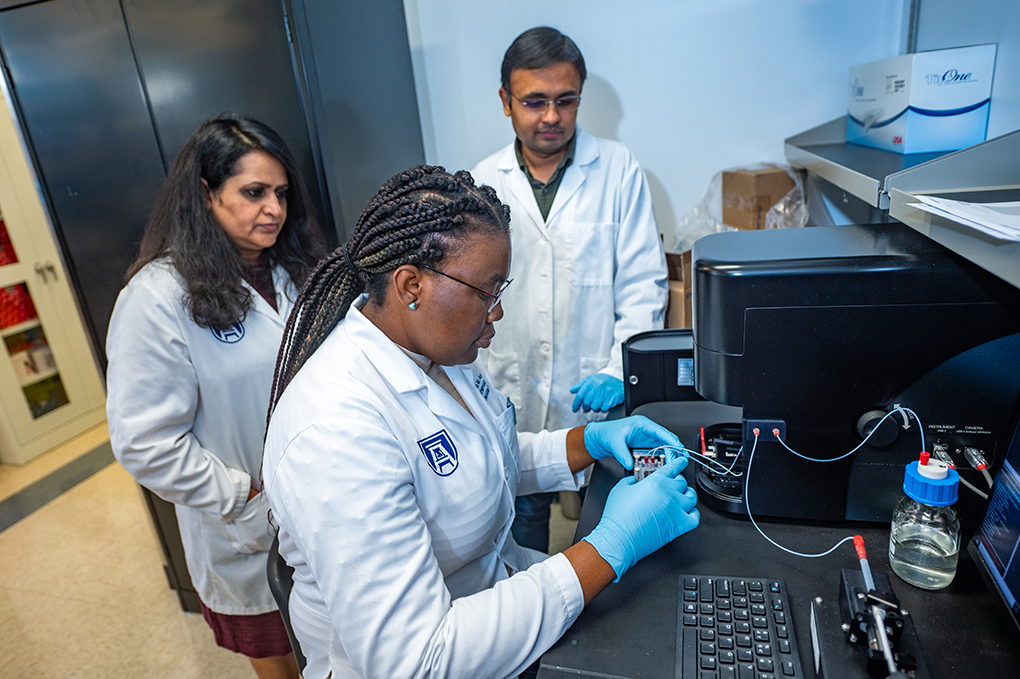
The team hopes that their research will help develop novel therapies to treat NEPC. In addition, the Saini lab is examining novel exosome/extracellular vesicle (EV)-based markers for better diagnosis and prognosis. lead to doctors being able to detect the disease sooner through identification and which will lead to doctors being able to detect the disease sooner. This in turn will lead to identifying better biomarkers for advanced disease and seeding development of novel therapeutic strategies against metastatic disease.
On top of being able to conduct research with Saini’s team, earlier this year Asante attended the 13th National Symposium on Prostate Cancer and Dr. Sidney A. McNairy Jr. Student Symposium, organized by the Center for Cancer Research and Therapeutic Development at Clark Atlanta University.
Over the course of the three-day symposium, Asante spoke with faculty researchers from several universities, as well as fellow students. The experience afforded her conversations on how different researchers approach academia and their research projects, find out insights into the various industries tied to their research and even learn techniques for managing multiple research projects.
One of the highlights of the experience came during the graduate poster competition in which Asante presented her research and was awarded second place.
“I received a lot of feedback from my presentation, including one idea in particular to utilize a different combination of drugs. We have been using two drugs, enzalutamide and tazemetostat, but someone suggested I try other drugs in combination with the exosomes. When I got back, we went back to the drawing board, and we are trying to see how to go about some of these things,” Asante said.
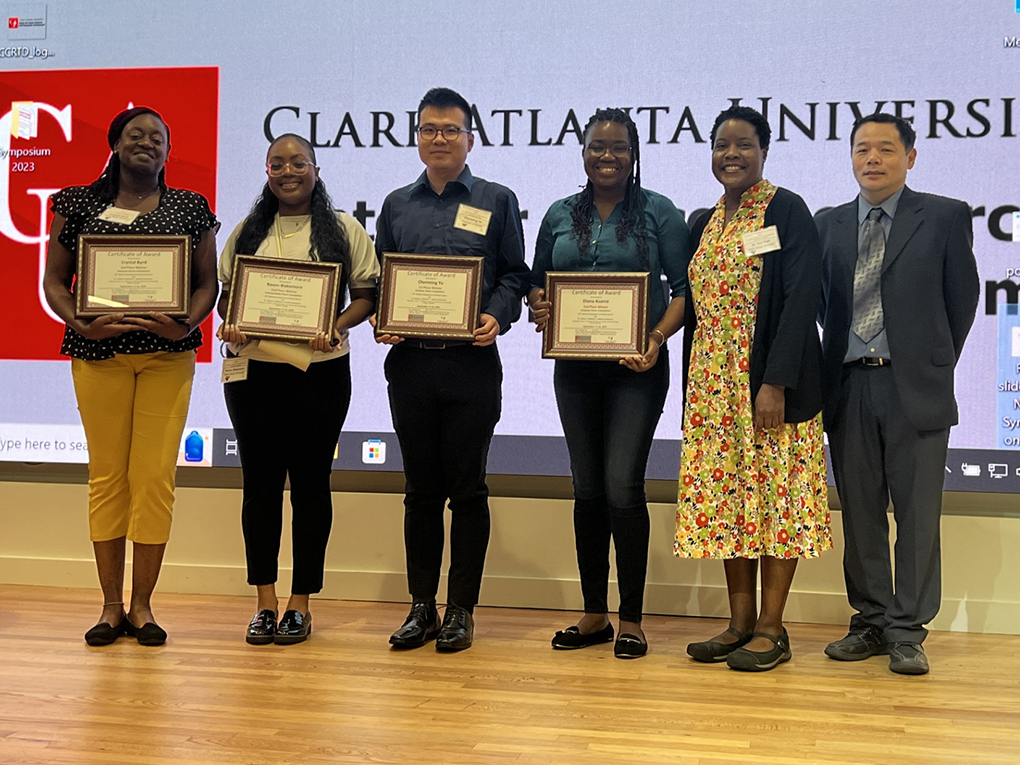
Asante enjoyed the experience because it allowed her to make meaningful connections that will serve her well as she continues on in her research journey.
Even though she is thoroughly enjoying her time at AU and the research she is a part of, Asante is already looking toward the future because she wants to help people through her research.
“I’m still open-minded about what path I want to take once my time at AU is complete because this field has a lot of opportunities. Right now, I’m leaning toward going into industry because, as I’ve been working on my research project, I have enjoyed learning about developing drugs from natural sources. But who knows, I may change my mind and become a professor in an academic setting.”
 Augusta University
Augusta University
